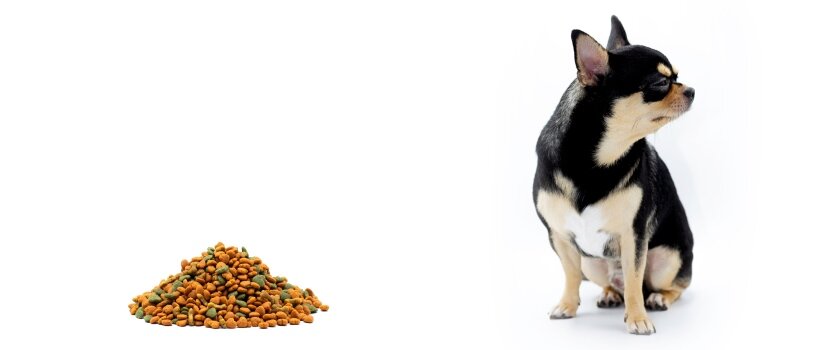Small dog breeds are more prone to asthma than larger dog breeds, and symptoms may come about slowly. If your furry best friend is having problems breathing or is using his abdominal muscles to help him breathe, you’ll need to visit an emergency veterinarian.
In this blog, we’re going to discuss what you can do to prevent asthma and the narrowing of airways that may make breathing difficult. Here’s the take on dogs and asthma.
At the beginning of an asthma attack, your dog will usually start off wheezing or coughing. If his asthma is severe, his breathing will become labored because his airways are obstructed.
Asthma is Not Contagious
Asthma in dogs is not contagious, and dogs may be prone to asthma after being exposed to an allergen like second-hand cigarette smoke, air fresheners, and other pollutants.
Allergens That Trigger Asthma in Dogs
Keeping your furry best friend away from second-hand smoke, air fresheners and deodorizers, cleaning products, mold spores, pesticides, cat litter particles, and even airborne allergens that can trigger inflammation uncontrolled mucus or fluid production is key to preventing an allergic reaction.
Senior Dogs & Asthma

Asthma usually affects middle-aged or senior dogs, as well as dogs that have a weakened immune system. Asthma in dogs is not a disease but is part of an allergic reaction to an allergen.
Viral infections, worms, parasites, and even bacterial infections can trigger an allergic response. Some dog breeds like the Pug or Maltese seem prone to getting asthma. That said, if you notice your dog is often wheezing or coughing, you should reach out to your vet for a diagnosis and consult.
Asthma Risks for Dogs
- Your dog could have an allergic reaction to many things in his environment, both indoors and outdoors. This means he’ll have inflammation and extra fluids that may make it hard for him to breathe normally.
- Everyday triggers might include smoke from tobacco or fireplaces, pollen, mold, candle scents, household products, personal hygiene products, and fragrances.
- Your veterinarian can diagnose your dog with an X-ray and offer treatments like medications or herbal remedies like eucalyptus oil and grape seed extract.
Dog Asthma Symptoms

Dog asthma signs could take you by surprise when your dog unexpectedly has fits of coughs and wheezing that’s unlike her regular breathing pattern… even worse, your dog’s gums may turn blue. He may gasp for air, which forces you to bring him to your local animal emergency hospital to get help before it’s too late.
The first clue for asthma in dogs is a change in breathing habits and panting. These are the five symptoms to watch for that indicate your dog may have asthma.
- Appetite loss: Your dog may avoid food and be lethargic because he’s having trouble breathing.
- Coughing and wheezing: Your dog may have trouble breathing, seem out-of-breath or start coughing and wheezing for no apparent reason.
- Panting: Watch for the amount of time your dog spends panting and how wide he opens his mouth. This means he may be using his chest muscles to gasp for air.
- Pale or blue gums: Bring your vet to your local animal emergency hospital immediately If your dog has pale or blue gums. These may be signs of a severe dog asthma attack.
Prevention Tips for Asthmatic Dogs
Common allergens that can trigger an attack include smoke (from tobacco, fireplaces, or wood stoves), household cleaners, air fresheners or deodorizers, perfumes, air pollution, airborne pollen, mold spores, pesticides and fertilizer, and cat litter particles.
In some dogs, triggers may be as innocuous as cooking odors or the scent of a burning candle.
Choose from these 8 tips to help with dog asthma:
- Air freshener and purifiers: Baking soda absorbs odors and can be placed under your furniture in shallow bowls your dog can’t reach. Add an air-purifying machine to keep your air cleaner and remove pollutants in your home.
- Floors and carpet: Use vinegar and water to clean your tile and hardwood floors. Remove rugs that may have toxic chemicals from the manufacturing process, which could affect your asthmatic dog.
- Fragrance: Try essential oils like lavender in place of perfume.
- Grooming: Bathe your dog monthly to keep his fur free of environmental allergens and dirt.
- Kitty litter: Switch to a dust-free brand to keep your air clean to help dog asthma. This will also allow your dog and cat to breathe more easily.
- Smoke: Keep your dog away from smoke, including tobacco, fireplaces, wood-burning stoves, and outdoor grills. This also means you may need to ask your friends and family not to smoke cigars or cigarettes near your dog.
- Pesticide: Use boric acid as a natural pesticide in places your dog doesn’t reach in your garden or yard.
- Herbal remedies: You can use eucalyptus oil diluted in coconut oil to help soothe your dog with asthma. The grape seed extract is a strong antioxidant, anti-inflammatory, and anti-allergen that can also help dog asthma. Add 25 mg grape seed extract to your dog’s meal daily for dogs under 20 pounds. Add 50-100 mg grape seed extract for medium to large dogs.
Veterinary Treatment for Asthma
Your veterinarian may prescribe medication to control asthma. These may include the following:
- Anti-inflammatories to reduce the amount of inflammation in the lungs. Antihistamines to combat allergic reactions
- Bronchodilators to ease breathing
You’ll also need to identify what’s triggering the allergic reaction and remove the allergen from your dog’s environment like airborne irritants. (pesticides, cigarette smoke, household cleaning products)
You should also be aware that air-conditioning filters need to be changed frequently to reduce the amount of dust and dander in your home. Don’t dust or vacuum near your dog since this may trigger allergies.
The final take is that you should keep your dog fit and regularly exercised to avoid obesity. Studies show that obesity and asthma go hand in hand.
Supplementing with vitamins and feeling a high-quality dog food formula promotes optimal immune health and may reduce the frequency of asthma attacks. Use humidifiers in your home, and keep the air moist to help your asthmatic dog. This will keep your dog comfortable.
All in all, to maintain good health, you will need to protect your dog from external factors like allergens to ensure that he lives a long and healthy life. Minimizing his exposure to toxins in the home by using natural house cleaners also helps.
Keep in mind that second-hand inhalation of fumes, cigarette smoke results in health risks. Aerosols, although not as dangerous as cigarette smoke, are still not safe. Protect your dog from the dangers of toxic fumes and allergens by limiting what your dog is exposed to.
